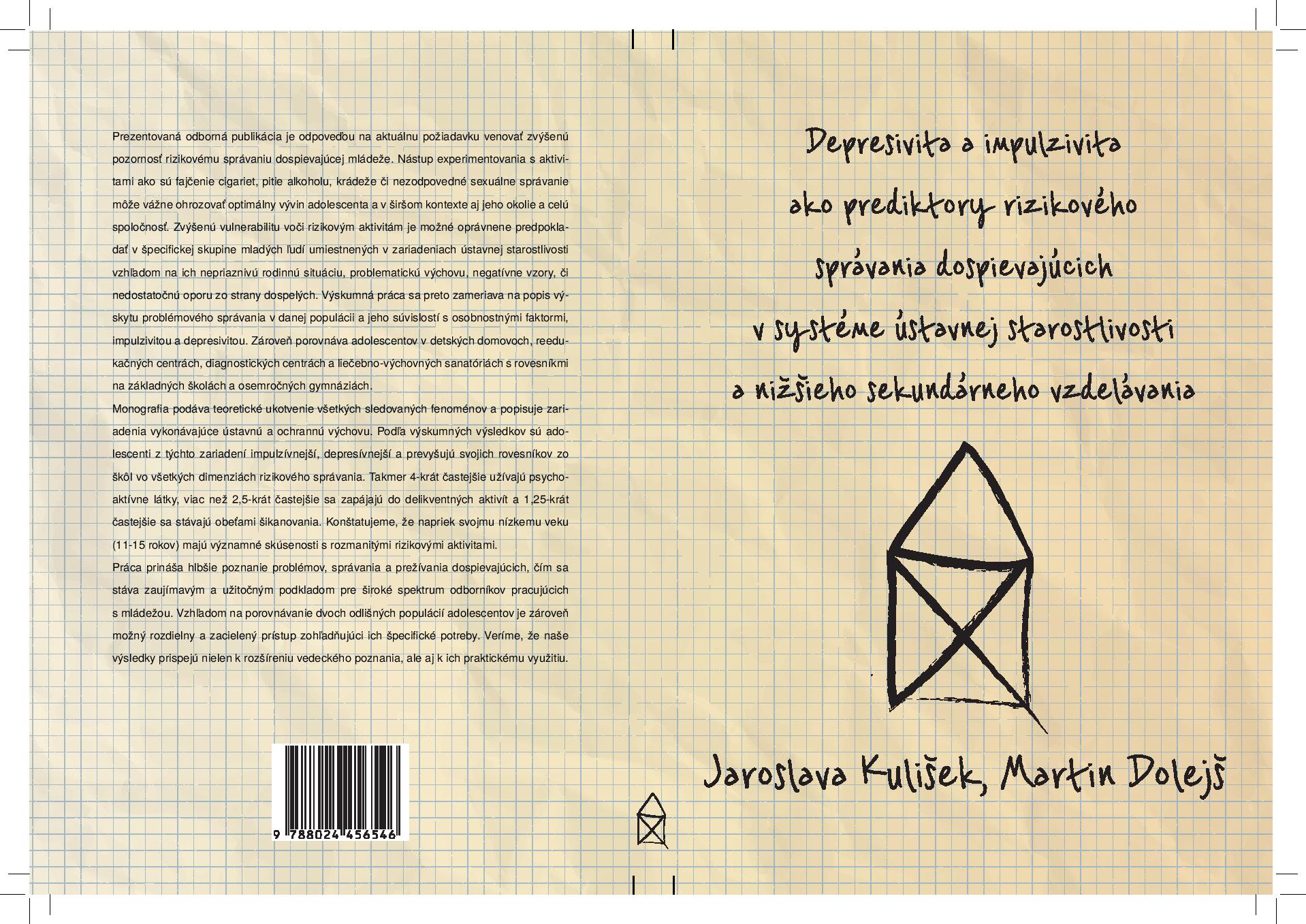
Category: depresivita


Mgr.- Agresivita, depresivita a hraní digitálních her u studentů přecházejících ze základní na střední školu v období pandemie COVID-19
Author: Štěpán Komrska
Supervisor: Martin Dolejš
Práce je zaměřena na tři proměnné (agresivita, depresivita, hraní digitálních her) v kontextu přechodu ze základní na střední školu (gymnázium, střední škola s maturitou) během pandemie COVID-19. Pro zachycení rozdílů byla použita Škála agresivity Dolejš, Suchá a Skopal, Škála depresivity Dolejš, Skopal a Suchá a Dotazník hraní digitálních her. Kvantitativní longitudinální výzkumné šetření bylo realizováno v průběhu jednoho roku a skládalo se ze tří sběrů dat, které mezi sebou měly časový rozestup 6 měsíců. Výběrový soubor v prvním sběru dat tvořilo 296 respondentů ve věku 14–16 let. Na hladině statistické významnosti α = 0,05 se u agresivity podařilo prokázat statisticky významný rozdíl díky poklesu hostility mezi prvním a třetím měřením, mezi druhým a třetím měřením i ve snížení skóru oproti normovému souboru. Hněvivost klesla ve srovnání před a po druhé vlně pandemie. U hněvu byl dále oproti normovému souboru naměřen výrazný nárůst po první vlně pandemie. V depresivitě se ukázal statisticky významný nárůst po první vlně pandemie ve srovnání s normou. Důležité bylo potvrzení vyššího skóre chlapců v hraní digitálních her oproti dívkám (p < 0,001). Výsledky poskytují základ pro zkoumání vlivu pandemie a přechodu ze základní na střední školu.
Aggression, depression and playing digital games of students transitioning from primary to secondary school during the COVID-19 pandemic
The thesis is focused on three variables (aggression, depression, playing digital games) in the context of the transition from primary to secondary school (grammar school, secondary school with a school leaving exam) during the COVID-19 pandemic. The Scale of aggression Dolejš, Skopal, Suchá (SADSS), The Scale of depresivity Dolejš, Skopal, Suchá (SDDSS) and Questionnaire of Digital Game Playing (QDGP) were used to capture the differences. The quantitative longitudinal research survey was conducted over the course of one year and consisted of three data collections spaced 6 months apart. The sample in the first data collection comprised of 296 respondents aged 14–16 years. At the level of statistical significance α = 0.05 for aggression, a statistically significant decline in hostility was confirmed between the first and third measurements, between the second and third measurements, when compared to the norm. In accordance to the results, anger declined before and after the second wave of the pandemic. Anger raised significantly after the first wave of the pandemic. In depression, the statistically significant effect after the first wave of the pandemic increased when compared to the norm. It was important to confirm the higher score of boys in playing digital games compared to girls (p <0.001). The results provide a basis for examining the impact of the pandemic and the transition from primary to secondary
Depresivita a impulzivita ako prediktory rizikového správania dospievajúcich v systéme ústavnej starostlivosti a nižšieho sekundárneho vzdelávania
Monografie je cílenou odpovedí na aktuální požadavky odborníku (speciálních pedagogu, psychologu, adiktologu a dalších) pracujících s adolescenty.
Predložený text pojednává o vybraných rizikových aktivitách a vybraných psychologických fenoménech u populace adolescentu ze zarízení ústavní výchovy.
Zvýšená vulnerabilita vuci rizikovým aktivitám je oprávnene predpokládaná ve specifické skupine mladých lidí, kterí jsou umísteni v zarízení ústavní výchovy
vzhledem k jejich nepríznivé rodinné situaci a problematickému chování. Predložená odborná kniha se zameruje na popis výskytu problémového a rizikového
chování ve sledované populaci a na souvislosti tohoto chování s impulzivitou a depresí. Podle výzkumných výsledku prezentovaných v této knize jsou
adolescenti z techto zarízení impulzivnejší, depresivnejší a rizikovejší než jejich vrstevníci ze základních škol a gymnázií.
Abstrakt angl.:
The present monograph provides a targeted response to the current demands of specialists (special educators, psychologists, addictologists and others) working
with adolescents. It deals with selected risk activities and particular psychological phenomena in the population of adolescents from institutional care facilities.
Increased vulnerability to risk activities is rightly foreseen in a group of young people who are placed in institutional care facilities due to their unfavorable
family situation and problematic behavior. The book focuses on the occurrence of problematic and risky behavior in the monitored population and on the
relation between such behavior and impulsivity and depression. According to the research results presented in this book, adolescents from these facilities are
more impulsive, depressed and at greater risk than their peers from primary schools and secondary schools.

Rizikové aktivity, depresivita a vybrané osobnostní rysy u českých adolescentů z dětských domovů se školou a z výchovných ústavů
Vavrysová, L. (2018). Rizikové aktivity, depresivita a vybrané osobnostní rysy u českých adolescentů z dětských domovů se školou a z výchovných ústavů. Olomouc: Univerzita Palackého v Olomouci.

Agresivita, depresivita, impulzivita a sebehodnocení u českých adolescentů
Suchá, J., & Dolejš, M. (2016). Agresivita, depresivita, impulzivita a sebehodnocení u českých adolescentů. Olomouc: Univerzita Palackého v Olomouci.
